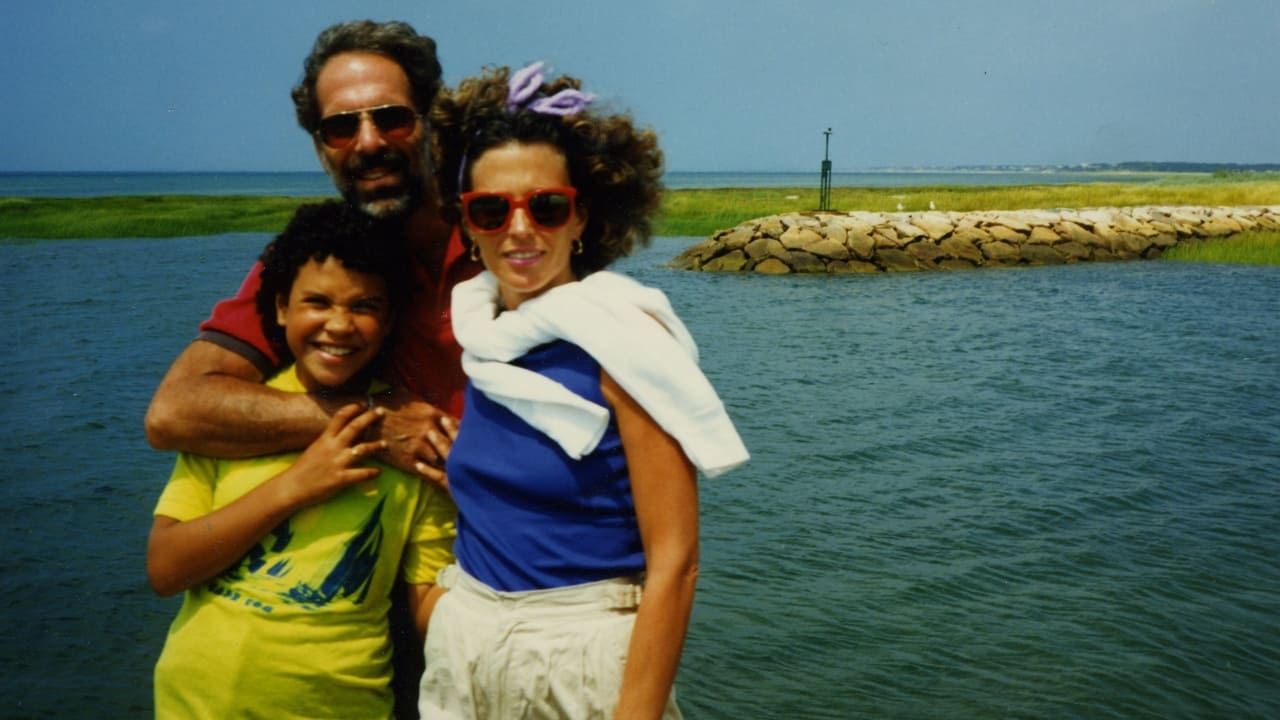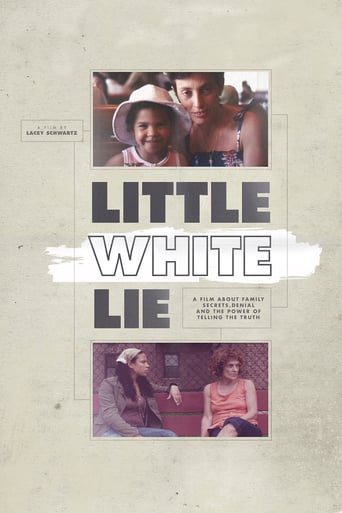



I love this movie so much
Very disappointed :(
It is an exhilarating, distressing, funny and profound film, with one of the more memorable film scores in years,
View MoreUnshakable, witty and deeply felt, the film will be paying emotional dividends for a long, long time.
View MoreLacey Schwartz is a filmmaker inspired by confusion about her own origins. Her film draws a gently curved line from her birth in 1970s New York to her wedding. Along the way she discovers her true racial, ethnic, and genetic identity. She is a strong, creative, Black Jewish woman in America, who embraces her family, culture, and community.I watched this film on PBS's Independent Lens. Many thanks to their team for bringing another great story to my TV.I admire Ms. Schwartz's honesty and the care she takes in showing the mile markers along her journey. Some events are obviously painful or discouraging, but Lacey's integrity and kindness keep her family bound by love and understanding. She walks a fine line between being a daughter and a filmmaker with grace.As a child of divorce, I particularly admire Ms. Schwartz's persistence to achieve an open understanding with her now divorced parents and their extended family, including her husband's own diverse family. Her wedding certainly was a joyous event and a very effective and affecting climax to the film.Finally, after watching this film, I got a chance to think, "This is what America can be." And that makes me happy, because we all can draw strength from this film and its maker. Happy Martin Luther King Day 2016, America.
View MoreLittle White Lie (2014) was written and directed by Lacey Schwartz. The movie is the autobiographical story of Ms. Schwartz, who was raised as a white, Jewish child, although her skin was--and is--clearly a light black. Lacey's parents were married, but, as we learn quickly, she is the product of an extramarital affair her mother had with a Black man.The father that raised her either refused to accept the fact that Lacey was not his biological child, or did accept it internally but chose not to openly acknowledge it. It was not until college that Lacey started to perceive herself as black.There's much more to the movie--interviews with her father and her mother, footage--but not interviews-- of her biological father, interviews with friends and relatives, and interviews with Lacey Schwartz herself. It's truly a fascinating situation, that is presented very well by the filmmaker/subject.We saw this film at Rochester's Little Theatre, as part of the excellent Rochester International Jewish Film Festival. Ms. Schwartz herself attended the screening, and answered questions after the movie ended. She very obviously presents herself as a Black woman, albeit a light-skinned Black woman. For the record, she is a wonderful speaker--intelligent, cultured, and articulate. It's a credit to the RIJFF that they were able to bring her to Rochester for the screening. We saw this film on the large screen, but it will work very well on a small screen. My suggestion is to find it and see it. It's a one-of-a-kind, extremely interesting, movie.
View More"Little White Lie" is an interesting documentary in that I was MUCH more interested in learning how they made the film as opposed to the content. Now this isn't to say the film isn't interesting or worth seeing--it's terrific. But how they filmed it...that's what I'd love to talk to the filmmakers about more than anything else.The film is an interesting real life story about a young Jewish women who didn't look like a typical Jew. After all, although EVERYONE in the family convinced themselves she was normal in every way, she was pretty clearly bi-racial. The obvious yet unasked question is 'how can a woman give birth to a bi-racial child when her husband is white?'--and obviously the biological father was someone else. Yet, everyone in her life bought into this lie! How does all this play out---see the film.The interesting part of all this is that you see the subject of the film, Lacey Schwartz, in therapy sessions talking about her true racial identity...which is super-odd. Later, even odder, you see her show at at a funeral for her biological father and folks walk around like it's a normal funeral...when it couldn't have been due to the camera crew. The same can be said about when she confronts her mother and father about her race. How could the film crew just happen to be there and no one thought anything of it?! I assume this was all re-staged for the cameras. And THAT is why I found this film so interesting...so unusual and worth seeing.By the way, I know the original quote by Krylov is about an elephant in the room, not a gorilla...but this is a quote by one of the family members when they FINALLY got to talking about the whole race issue.
View MoreI applaud Lacey Schwartz's intention and success in making this film, assuming I understand her intention, i.e., to bring to light the issue of lying and denial of truth within a family, as well as all the implications about race, being true to oneself, etc. I related personally to the film on more than one level. Like both Lacey and her parents, I grew up in a New York Jewish household, so many of the cultural routines and features shown were ones I also experienced. I also have a "mixed" child; I am white and my son's father is black. Unfortunately, my son would not benefit from watching this film as he is developmentally delayed and would not grasp it.I found myself feeling so warmly toward both Lacey and her mother and father. It is a testament to the love Lacey must have felt growing up, despite having been deceived, that she grew up to be so self-possessed, creative, and intellectually curious rather than becoming someone with anger, depression, and self-destructive behaviors which also could have happened and didn't. She seems to be as beautiful a person inside as she is outside.And, I just love the way she ended the film, by saying she thought of changing her last name, having never particularly liked the name Schwartz, but ultimately decided to keep it because, ironically, in Yiddish, "schwartz" means "black."I wish her, her parents, and everyone else in her family, all the best.
View More